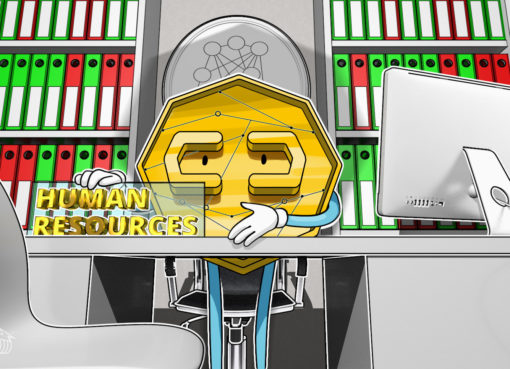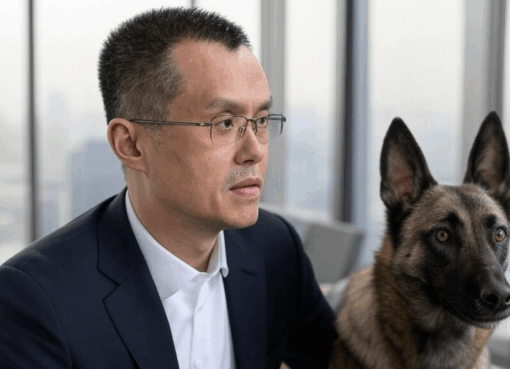As initial coin offerings and their derivatives continue to fade, venture investment in the space has steadily picked up pace. CryptoX sat down with Michael Anderson, co-founder of Framework Ventures, to learn more about his investment philosophy and outlook on the ecosystem.
Anderson’s most notable investments are Chainlink (LINK) and Synthetix, both of which grew tremendously in 2019. Predictably, he is quite positive about decentralized finance (DeFi), sharing his thoughts on the evolution of the ecosystem after a round of questions on venture investment in crypto.
Venturing out to crypto
Anderson came on the venture capitalist (VC) path by passing through tech companies first. Introducing himself, he said:
“My background largely stems from traditional technology. I started working at Dropbox, worked there for four years and then moved to Snapchat. For both of those companies I was a product manager, focused mostly on payments and commerce […] I’ve seen what it was like on the traditional side during the day, and then on nights and weekends I was studying, researching and playing around with all of this new novel technology.”
Together with his partner Vance Spencer he founded Hashletes, a company releasing non-fungible tokens. The company was later sold, with both of them subsequently founding Framework Ventures.
Anderson explained what compelled the duo to open an investment fund:
“One of the things that we realized when we were starting the firm is that there was a major gap for protocol investing. Traditional VCs were just buying and holding or biasing towards equity. Tech companies were building on top of these protocols or building protocols themselves. Hedge funds were just trading these or thinking in short terms.”
The Framework founders believed that investing in protocols required a change of principles. For this reason, Anderson referred to his fund as “Network Capital,” in a wish to not be conflated with traditional venture investors.
The fund primarily deals with token-based investment, as “that is where most of the value accrue is.” But it also invests in company equity and builds tools on top of the protocols with which it is involved.
Crypto investment philosophy
Both Spencer and Anderson were active as angel investors in the years before founding Framework. That may explain why some of the fund’s principles have a lot in common with angel investment.
Anderson emphasized that Framework has a long-term vision for all the projects it invests in — even at the cost of delaying an exit. Despite the significant rallies that both Chainlink and Synthetix saw last year, the fund is still deeply invested in both projects.
When asked how Framework feels about investing in a space where companies and projects generally have little to no revenue, Anderson noted that “it is different and it requires a different mindset.”
While the fund will also invest in more traditional companies that have a clearly defined legal entity and revenue, Anderson believes that the value of an open network flows to its token.
Without clearly defined metrics, the valuation method of a project has to change as well. Anderson explained:
“The general idea of what we evaluate, frankly, has nothing to do with price. It has something to do with comparative price to other comparable projects. But frankly, all we look at is qualitative analysis.”
The project’s roadmap holds some weight in this analysis, allowing the investors to gauge its potential. Market evaluation is also crucial, with the duo identifying the importance of oracles and synthetic assets even before any investment.
Yet, the final investment decision still hinges on the personalities behind the project — like with angel-based seed funding. When discussing what compelled the venture fund to invest in both Chainlink and Synthetix, Anderson focused on the founders:
“Our view was that this guy, Sergey [Nazarov, founder of Chainlink], has been in the space since 2013. He’s tried to build smart contract platforms before, and Ethereum kind of beat him out there. So he knows what it’s like to go through the rigamarole. But then also the implicit backing of Cornell and the Cornell research team at IC3 […] That’s what gave us confidence in Chainlink.”
As for Synthetix, Anderson met with its founder, Kain Warwick, even before any kind of investment discussion:
“I ended up sitting next to Kain from Synthetix at a Chainlink dinner at ETHBerlin last summer. And I just got to know him and really got to know what he was about.”
Nevertheless, Framework’s broader investment strategy is dictated by its vision for the future of crypto.
DeFi’s potential
Framework Ventures currently focuses on decentralized finance, a niche that has steadily grown in 2019. Anderson laid out the investment thesis:
“If we break down what blockchain enables in the core function itself, it’s trustless transfer of value. And when you have trustless transfer of value, its programmability is essentially what DeFi is.”
He added that he believes a broader Web 3.0 is still coming in the future, but DeFi is the current focus of the fund. Yet in its existing form, DeFi is mostly used for leveraged trading of crypto assets. As Anderson explained:
“A lot of the stuff that’s going on right now is almost recursive […] especially Maker. Over-collateralized loans as a concept is just a very inefficient model.”
Answering a question whether DeFi will branch out into non-trading use cases, Anderson replied: “Quick answer is yes. I think the bigger, broader question is when.”
He revealed that Framework is currently looking into under-collateralized loans, powered by social or identity checks.
Decentralized insurance
As DeFi continues to mature, the space where Anderson currently sees the clearest potential is insurance:
“Insurance could also be a huge thing. Fifty percent of the cost of an insurance company, which usually has a one to two percent profit margin, is based around the headcount and the claims process. So if you can streamline even just a small portion of that 50% of the cost structure, there is a highly profitable insurance company coming out of there.”
Decentralized insurance is one of the potential applications of highly advanced oracles, and both Framework and Chainlink are aware of that, as Anderson revealed.
He envisioned a potential scenario where car sensors would pick up all the necessary data and send it to a smart contract for processing claims — streamlining the existing process. “Obviously, this is a further out vision than where we are right now,” he conceded.
When asked whether smart contracts and blockchain really have a use in this vision, he noted that an open network for insurance would have a strong competitive advantage over traditional companies, taking Geico as an example:
“I think one of the one of the benefits of having an open network is that you’re able to build the collateral pool that Geico currently has based on finding counterparties to underwrite risk. […] Geico […] has been around for almost 100 years, if not over 100 years. So they’ve been able to build this war chest of collateral. […] If we can bootstrap that in an almost peer to peer manner and in a distributed network, I think that’s a huge advantage.”




